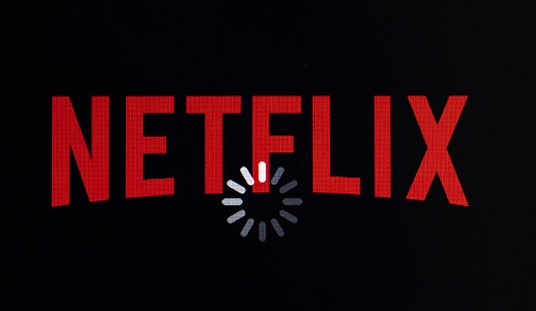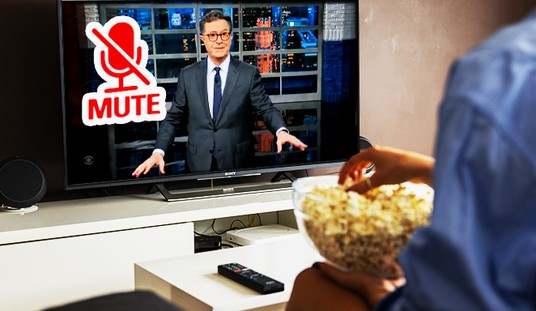Before delving into the legal analysis alluded to in the headline, there are some points that can be clearly stated:
First, the Federal Communications Commission (FCC) is a regulatory agency of a bygone era, and the purpose it serves is likely antiquated given today’s media landscape.
Second, the justification for creating the FCC was “scarcity” – at the time, the “radio spectrum” was limited and deemed by the government to belong to the public just like oxygen in the atmosphere. The application and renewal of licenses to allow for commercial use of this public asset included, as a matter of public policy, an ongoing responsibility for the FCC to monitor and evaluate whether those licensees were serving the “public interest.”
Third, there has been a bona fide debate for decades over whether the FCC has outlasted its usefulness. There are advocates of the view that the FCC should be abolished or at least have its jurisdiction more restrained — principally by eliminating any involvement in content moderation. This is generally my view.
But that is not the law as it exists today.
Separate sections of the Federal Communications Act included the “public interest” provision – one dealing with initial applications and a separate provision dealing with renewals.
The “application” section, 47 U.S.C. Sec. 309, reads as follows:
(a) Considerations in granting application
Subject to the provisions of this section, the Commission shall determine… whether the public interest, convenience, and necessity will be served by the granting of such application….
License renewals are reviewed for “public interest” consideration pursuant to Sec. 309(k), which reads as follows:
(1). Standards for renewal:
If the license of a broadcast station submits an application to the Commission for renewal of such license the Commission shall grant the application if it finds, with respect to that station during the preceding term of its license --
(A) the station has served the public interest, convenience, and necessity;
(B) there have been no serious violations by the licensee of this chapter or the rules and regulations of the Commission; and
(C) there have been no other violations by the license of this chapter or the rules and regulations of the Commission which, taken together, would constitute a pattern of abuse.
For more than 80 years, the Supreme Court has declined to provide a definition of “public interest” as the term is used in the FCA. The Court recognizes the FCC has great discretion under the statute to determine the term’s meaning. In FCC v. Pottsville Broadcasting (1940), Justice Frankfurter wrote for the Court:
In … granting, denying modifying or revoking licenses for the operation of stations, "public convenience, interest, or necessity" was the touchstone for the exercise of the Commission's authority ... [T]his criterion … serves as a supple instrument for the exercise of discretion ... Necessarily, therefore, the subordinate questions of procedure in ascertaining the public interest, when the Commission's licensing authority is invoked… were explicitly and by implication left to the Commission's own devising ... Underlying the whole law is recognition of the rapidly fluctuating factors characteristic of the evolution of broadcasting and of the corresponding requirement that the administrative process possess sufficient flexibility to adjust itself to these factors. Thus, it is highly significant that … a license may not be issued for more than three years, and, in deciding whether to renew the license, just as in deciding whether to issue it in the first place, the Commission must judge by the standard of "public convenience, interest, or necessity."
It is not a matter of technicalities or semantics to distinguish between FCC Chairman Carr’s public commentary about Jimmy Kimmel’s statements during his show as a matter within the scope of the responsibilities of the FCC, and the conduct of Biden administration officials and agencies in actively “jawboning” social media companies to suppress information and deplatform conservatives as they admittedly did. The FCC has actual authority to engage in content moderation – the FBI and Biden White House staff have no such responsibilities.
Any analysis of Chairman Carr’s comments after Jimmy Kimmel’s original remarks begins with the proposition that it was within Carr’s lawful authority to take notice of whether the comments contravened the obligation of licensees ABC and the broadcast stations to serve the “public interest, convenience, and necessity” without regard – in the first instance – to the First Amendment.
The FCC has rules against “news distortions” or broadcasting false information about “hoaxes” involving false reporting on “crimes” or “catastrophes” if the public was harmed. The FCC has a published guide titled “The FCC and Speech” that covers these issues and the rules adopted by the FCC to address them.
On the issue of “broadcast news distortions,” a 1998 decision by the D.C. Circuit Court of Appeals is instructive. In Serafyn v. FCC, a petition was filed against CBS’s license application over a “60 Minutes” story on post-Soviet era Ukraine. The petition claimed CBS intentionally distorted the segment by claiming that Ukrainians were antisemitic. The FCC summarily denied the petition without a hearing, and the plaintiff filed an action in the D.C. courts.
The D.C. Circuit opinion concerning the FCC’s investigation process on a claim of “news distortion” was written by Judge Douglas Ginsburg (previously nominated to the Supreme Court by Pres. Reagan, but who later withdrew over reports of marijuana use when younger) – the emphasis is added:
In determining whether an allegation of news distortion raises a question about the licensee's ability to serve the public interest, the Commission analyzes both the substantiality and the materiality of the allegation. The Commission regards an allegation as material only if the licensee itself is said to have participated in, directed, or at least acquiesced in a pattern of news distortion.
An allegation of distortion is "substantial" when it meets two conditions as we summarized in an earlier case:
[F]irst, ... the distortion ... [must] be deliberately intended to slant or mislead. It is not enough to dispute the accuracy of a news report ... or to question the legitimate editorial decisions of the broadcaster.... The allegation of deliberate distortion must be supported by "extrinsic evidence," that is, evidence other than the broadcast itself, such as written or oral instructions from station management, outtakes, or evidence of bribery.
Second, the distortion must involve a significant event and not merely a minor or incidental aspect of the news report.... [T]he Commission tolerates ... practices [such as staging and distortion] unless they "affect[ ] the basic accuracy of the events reported."
The court noted that CBS took the position that any FCC investigation into the "60 Minutes" segment violated the First Amendment, and submitted no information or evidence to the FCC prior to the FCC denying the petition without a hearing. The court further noted:
As we have explained, the appropriate questions for the Commission to ask at the threshold stage are first, whether the petitioner's allegations make out a prima facie case, and second, whether they raise a substantial and material question of fact regarding the licensee's ability to serve the public interest.
So, a possible defense under the First Amendment is NOT a shield that prevents an initial FCC inquiry – “the threshold stage” — on the question of "public interest.”
The court went on:
In requiring Serafyn to "demonstrate" that CBS intended to distort the news rather than merely to "raise a substantial and material question of fact" about the licensee's intent, the Commission has misapplied its standard…. Although we do not propose to determine just how much evidence the Commission may require or whether Serafyn has produced it…, we can safely say that the quantum of evidence needed to raise a substantial question is less than that required to prove a case.
We are also concerned about the Commission's method of analyzing the various pieces of evidence that Serafyn presented…. The decision under review, however, suggests (though not conclusively) that the Commission analyzed each piece of evidence in isolation only to determine, not surprisingly, that no item by itself crossed the threshold…. [U]pon remand the Commission must consider all the evidence together before deciding whether it is sufficient to make a prima facie case or to raise a substantial and material question of fact.
This means that Kimmel’s comments on September 15 are not to be considered in isolation. It is a necessary part of the inquiry for the FCC to look into whether there are past instances of “news distortions” by Kimmel that might support the conclusion that the September 15 comments were “substantial” under the FCC rule.
Three paragraphs later, the court noted the evidence that was produced by the plaintiff to the FCC about a “policy” of CBS News to tolerate distortion, but which the FCC ignored:
[T]he Commission's denial of Serafyn's petition also rested upon the alternative ground that he had not alleged a general pattern of distortion extending beyond that one episode. Upon appeal Serafyn argues … that he did present evidence regarding CBS's general policy about distortion… and that the Commission failed to discuss or even to mention this evidence. Both [Mike] Wallace's comment ("you don't like to baldly lie, but I have") and [Don] Hewitt's ("it's the small crime vs. the greater good") are, to say the least, suggestive. Furthermore, both Wallace … and Hewitt are likely members of the "news management" whose decisions can fairly be attributed to the licensee…. The Commission's failure to discuss Serafyn's allegation relating to CBS's policy on veracity is therefore troubling…. The Commission must consider these allegations upon remand.
This establishes the proposition that the FCC has a duty based on its statutory responsibility to conduct investigations of allegations of distortions of the news. That inquiry can extend into the policies and decision-making of licensee management, and that can include express or de facto policies tolerating distortions based on comments by the decision-makers of Kimmel’s show, ABC executives, and Disney executives if their involvement can be established in fact.
Finally, as has been commented on by others in the ongoing public debate about Kimmel’s comments, the FCC does have a regulation – 47 C.F.R. Sec. 73-1217 — that prohibits “hoaxes” involving “crimes.” But this rule seems not to be implicated in Kimmel’s comments when the manner of its application by the FCC is properly characterized:
(a) No licensee or permittee of any broadcast station shall broadcast false information concerning a crime or a catastrophe if:
(1) The licensee knows this information is false;
(2) It is foreseeable that broadcast of the information will cause substantial public harm, and
(3) Broadcast of the information does in fact directly cause substantial public harm.
….
For purposes of this rule, “public harm” must begin immediately, and cause direct and actual damage to property or to the health or safety of the general public, or diversion of law enforcement or other public health and safety authorities from their duties….
The regulation seems clearly aimed at intentional misreporting either while the crime/catastrophe is underway or in the immediate aftermath thereof. Commentary, such as Kimmel’s, nearly a week after Charlie Kirk’s murder, almost certainly falls outside the scenarios anticipated by the rule.
Whether the FCC should have this authority in today’s media landscape is a different question from whether that authority exists under current statutory and case law. Nothing above suggests that Kimmel, ABC, or Disney has violated the FCC rule on “news distortions” – that’s what investigations are for. If the fact of an investigation offends First Amendment sensibilities, that’s a basis for changing the law, not for criticizing the otherwise lawful investigation while the law remains as it is currently written.
Editor’s Note: Do you enjoy RedState’s conservative reporting that takes on the radical left and woke media? Support our work so that we can continue to bring you the truth.
Join RedState VIP and use the promo code FIGHT to get 60% off your VIP membership!















Join the conversation as a VIP Member